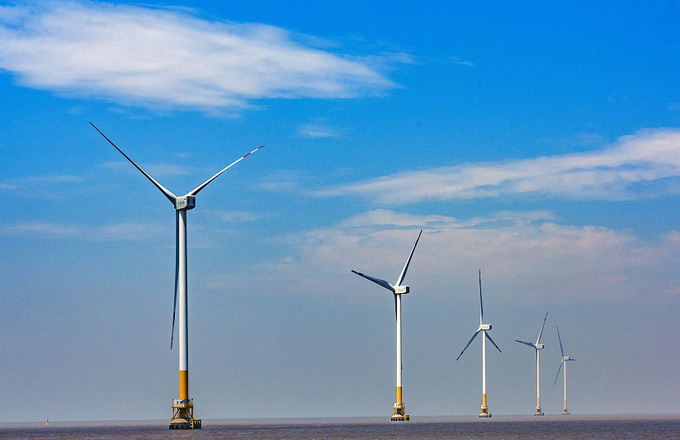UK auto industry frets about future as Brexit counts down
LONDON - Ford's Dagenham diesel engine plant is a marvel of mechanization - a steel and chrome hangar full of LED lighting, robots and computer-controlled machine tools.
The US carmaker has invested $2.5 billion in the plant, where 3,150 people churn out an engine every 30 seconds. And they've been here a long time: Edsel Ford, son of founder Henry Ford, personally cut the sod to start construction of the company's UK manufacturing headquarters in 1929.
It's hard to imagine Ford would walk away from all that if Britain fails to negotiate a favorable trade deal when it leaves the European Union.
But don't bet on it. With auto parts passing through as many as 15 countries before a car is completed, a Brexit agreement that results in new tariffs that increase the cost of Ford vehicles for consumers is no small problem.
"It will force us to consider what the longer-term options are for the investments that we make, because let me be clear: We have to transact business in an environment where we can be competitive, and it's that competitive base that we're interested in making sure is protected," said Steven Armstrong, CEO of Ford in Europe.
Britain's car industry, which employs 814,000 people, illustrates the struggle the country faces as it prepares to exit the EU.
Cars are assembled, not forged in a single place. Modern manufacturing techniques result in automakers having plants in several locations, often in different countries, that specialize in producing pieces of the finished vehicle. For instance, the plant in Dagenham, in East London, makes nothing but diesel engines and parts.
Tariffs, which are non-existent for goods that move from one EU nation to another, are an oversized threat to British carmakers because they could be applied each time those components cross and re-cross international borders on their way to the new car showroom.
"The country has high-tech assembly, a good supply chain, links to Formula One teams that add to innovation - it does have a lot to recommend it," said David Elmes, an expert on global energy and corporate change at the Warwick Business School. "But access to the European market is a concern."
Those concerns can be seen by following the movements of one component throughout the manufacturing process.
The unit is accompanied by a "birth history," a passport of sorts, that chronicles where and when every component was installed. The summary alone is 56 pages long. This passport traces the block's world travels from its "birth" as a cylinder block in Cologne, Germany, through Belgium and Holland and finally on to Dagenham.
It will get a new "stamp" when the block is shipped back over the English Channel and across Europe to Turkey, where it will become part of a rear-wheel drive vehicle. Some of those vans then cross back across the UK border for a third time for sale - and theoretically each time it crosses, it could be taxed after Brexit.
British carmakers, and many other industries, want the government to negotiate an agreement that preserves free trade with the EU's single market after Brexit.
Failure to do so could mean that tariffs and quotas are applied according to World Trade Organization rules, which would make each vehicle more expensive.
WTO rules could raise the cost of finished vehicles by 10 percent, said Mike Hawes, chief executive of the Society of Motor Manufacturers and Traders.
"That could potentially fl ow through to about 1,500 pounds ($1,920) on the price of any vehicle, any imported vehicle from Europe sold in the UK. So that would be a difficult and substantial cost to mitigate and clearly it would be to a large extent passed on to the consumer."
The industry relies on Europe as both a market and a supplier, with the EU accounting for 56 percent of UK car exports and 69 percent of imports in 2016, according to the SMMT. Besides that, Europe supplies the majority of components within UK-built vehicles.
Ford wants to know how the government plans to address this issue - and how soon.
"We want access to the single market, we want a frictionless ability to move goods from the UK to Europe and back again, and we need some clarity on how that's going to be delivered from the government," Armstrong said. "That's what we really want."
Prime Minister Theresa May has repeatedly said that remaining in the single market is not an option, but the government this month outlined its hopes for an agreement that would permit the "freest and most frictionless possible trade" with EU member states. This could include a temporary customs union with the bloc for up to three years after Britain leaves in 2019, to give businesses time to adjust to the new rules.
AP

























